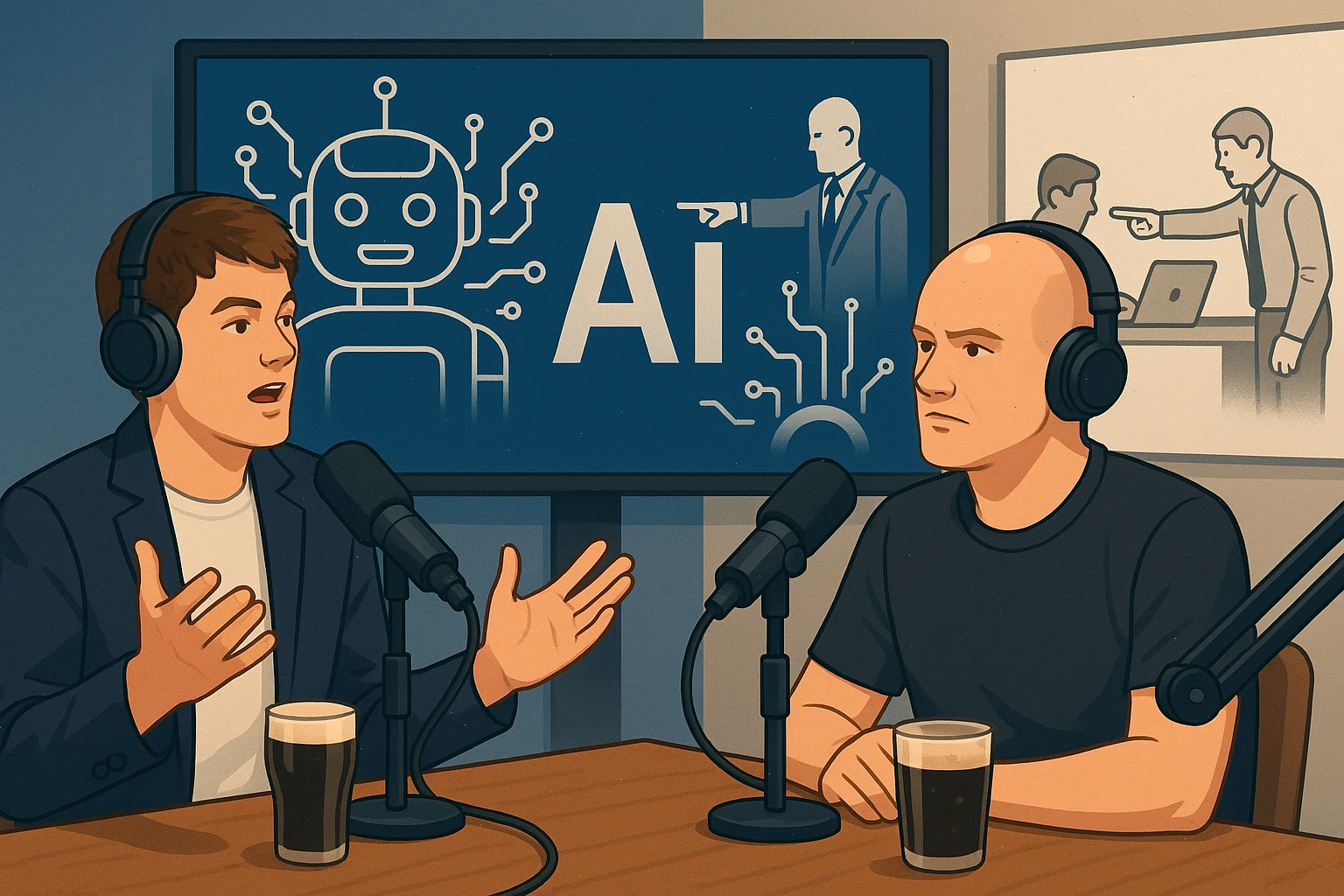
Coinbase CEO Explains Why Engineers Were Fired Over AI
Brian Armstrong, CEO of Coinbase, recently discussed on the “Cheeky Pint” podcast with John Collison why certain engineers were let go for failing to adopt AI tools immediately. This decision followed Coinbase’s acquisition of enterprise licenses for GitHub Copilot and Cursor, making AI coding assistants available to all engineers across the company.
AI Adoption Is Becoming Mandatory For Programmers
According to Armstrong, it is increasingly rare to find developers who do not use AI in some capacity, particularly for repetitive or mundane coding tasks. The reluctance of some engineers to adopt AI tools after the company purchased licenses surprised him, prompting a firm response. Armstrong emphasized that AI is not just an optional productivity tool—it is an essential skill for modern software development.
Immediate Onboarding And Saturday Accountability Meetings
Once the licenses were distributed, some engineers warned that AI adoption would be slow, predicting it could take months for even half the team to start using the tools. Armstrong disagreed with this approach. He posted a mandate in Coinbase’s main engineering Slack channel, instructing all engineers to onboard AI tools by the end of the week. To enforce this, he organized a Saturday meeting for anyone who had not yet complied. While some employees had legitimate reasons, such as being on vacation, a few engineers who did not provide a good reason were fired. Armstrong admitted that the approach was “heavy-handed” and acknowledged that not everyone in the company agreed with it.
The Message: AI Is Not Optional
While the number of employees actually fired was small, Armstrong said the action sent a strong message that embracing AI was mandatory. He expressed surprise that some engineers were unwilling to spend just a few minutes signing up and experimenting with the AI tools—the most hyped technology for coders in recent years. This episode reflects the CEO’s commitment to ensuring the workforce quickly adapts to emerging technologies that can improve productivity.
Ongoing AI Training And Knowledge Sharing
Since the initial enforcement, Coinbase has leaned further into AI training. The company now hosts monthly meetings where teams share creative ways to use AI and demonstrate practical applications. This allows other engineers to learn and adopt best practices, fostering a culture of continuous improvement and innovation.
Questions About AI-Generated Code And Its Management
Despite the clear benefits, John Collison questioned the long-term reliance on AI-generated code, noting the challenges of managing a codebase heavily influenced by AI. Armstrong acknowledged the concern, agreeing that overseeing AI-written code requires careful attention. A similar situation was reported at OpenAI, where a former engineer described the central code repository as somewhat disorganized, prompting management to allocate engineering resources to improve its structure.
Implications For The Tech Industry
This incident highlights the increasing importance оf AI fluency for developers and the lengths tо which tech leaders are willing tо gо tо integrate AI into their organizations. It also sparks a wider conversation about balancing rapid technological adoption with employee autonomy and adaptation. Armstrong’s decisive approach may seem extreme, but іt underscores the urgency оf keeping pace with rapidly evolving development tools and industry expectations.
Conclusion
Coinbase’s AI initiative and the subsequent firings demonstrate the growing centrality оf AI іn programming workflows. For developers, the lesson іs clear: AI skills are nо longer optional—they are a critical part оf staying relevant іn the modern tech environment. The story also emphasizes the tension between innovation, productivity, and human factors іn managing high-tech teams.

Leave a Reply